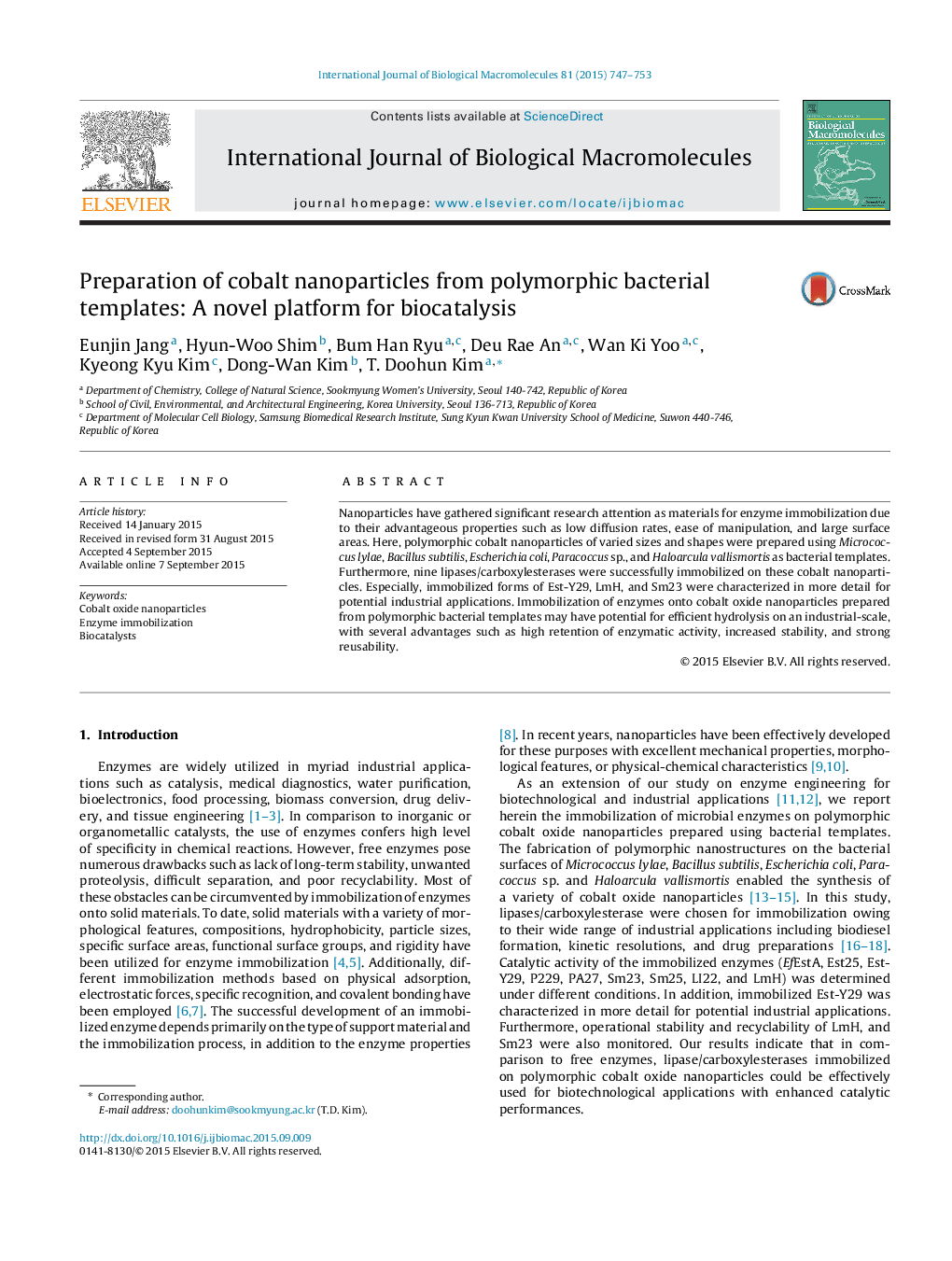| Article ID | Journal | Published Year | Pages | File Type |
|---|---|---|---|---|
| 8330675 | International Journal of Biological Macromolecules | 2015 | 7 Pages |
Abstract
Nanoparticles have gathered significant research attention as materials for enzyme immobilization due to their advantageous properties such as low diffusion rates, ease of manipulation, and large surface areas. Here, polymorphic cobalt nanoparticles of varied sizes and shapes were prepared using Micrococcus lylae, Bacillus subtilis, Escherichia coli, Paracoccus sp., and Haloarcula vallismortis as bacterial templates. Furthermore, nine lipases/carboxylesterases were successfully immobilized on these cobalt nanoparticles. Especially, immobilized forms of Est-Y29, LmH, and Sm23 were characterized in more detail for potential industrial applications. Immobilization of enzymes onto cobalt oxide nanoparticles prepared from polymorphic bacterial templates may have potential for efficient hydrolysis on an industrial-scale, with several advantages such as high retention of enzymatic activity, increased stability, and strong reusability.
Related Topics
Life Sciences
Biochemistry, Genetics and Molecular Biology
Biochemistry
Authors
Eunjin Jang, Hyun-Woo Shim, Bum Han Ryu, Deu Rae An, Wan Ki Yoo, Kyeong Kyu Kim, Dong-Wan Kim, T. Doohun Kim,
